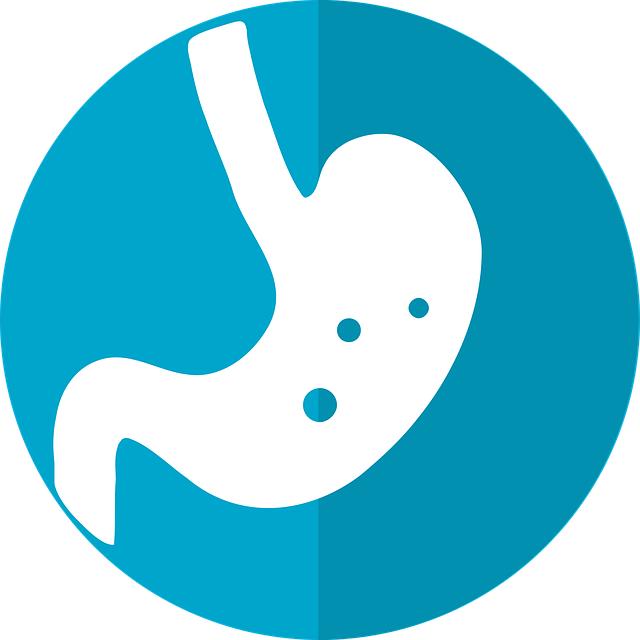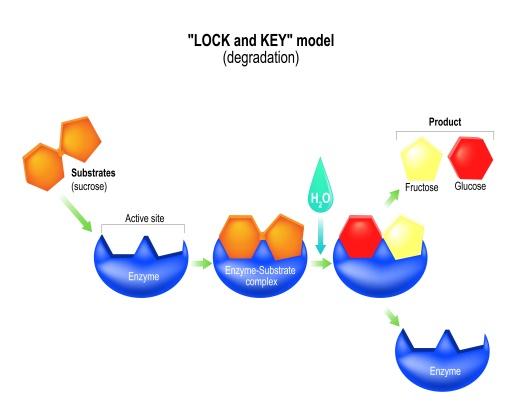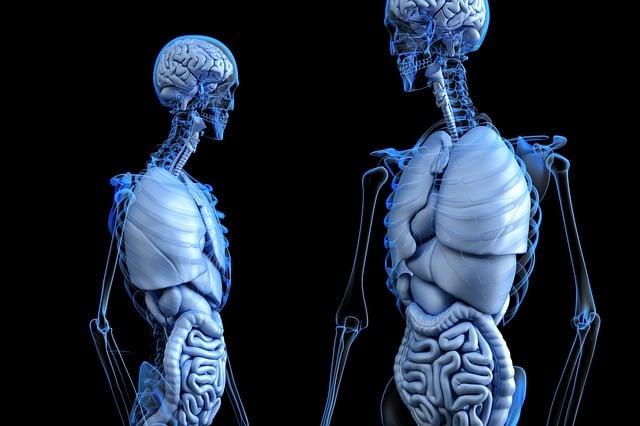Unraveling the Mysteries of digestion: The Role of Digestive Enzymes Complex in Breaking Down Proteins, Fats, and Carbohydrates
In the intricate dance of digestion, our bodies perform a remarkable feat, breaking down the food we consume into usable energy and nutrients.But behind this natural process lies a team of unsung heroes: digestive enzymes. These tiny but mighty proteins serve as catalysts, facilitating the breakdown of macronutrients—proteins, fats, and carbohydrates—into their simpler forms. Yet, as we navigate the complexities of modern diets, challenges abound that can hinder this essential process. Enter the digestive Enzymes complex, a carefully formulated blend designed to support the body’s natural ability to assimilate nutrients effectively. In this article, we will explore the fascinating world of digestive enzymes, uncovering their vital role in promoting optimal digestion and how a well-balanced enzyme complex can make all the difference in achieving digestive harmony. Join us as we embark on a journey through the digestive system,shedding light on the power and importance of these natural facilitators in our daily lives.
Exploring the Role of digestive Enzymes in Nutrient Absorption
Digestive enzymes play a crucial role in breaking down food into its constituent nutrients, ensuring their effective absorption in the body. These specialized proteins act on carbohydrates, fats, and proteins, facilitating the conversion of complex molecules into simpler forms. This process is vital for optimal nutrition, as it allows the body to utilize essential vitamins, minerals, and energy efficiently. Some of the key digestive enzymes include:
- Amylase: Breaks down carbohydrates into simple sugars.
- Protease: Converts proteins into peptides and amino acids.
- Lipase: Responsible for breaking down fats into fatty acids and glycerol.
Without sufficient levels of these enzymes, the body may struggle with nutrient uptake, potentially leading to deficiencies and digestive discomfort. Factors such as aging, diet, and gastrointestinal health can influence enzyme production, which is why some individuals benefit from enzyme supplementation.Consider the following table, detailing how each enzyme supports specific nutrient absorption:
| Enzyme | Target Nutrient | Key Benefits |
|---|---|---|
| Amylase | Carbohydrates | Enhances energy production and stabilizes blood sugar levels. |
| Protease | Proteins | Supports muscle repair and immune function. |
| Lipase | Fats | Promotes healthy fat metabolism and hormone production. |

Understanding the Specific Functions of Protease, Lipase, and amylase
The body relies on a trio of remarkable enzymes to facilitate the complex task of digestion—each one finely tuned to tackle specific nutrients. Protease, as a notable example, is the key player in breaking down proteins into their building blocks, amino acids.These smaller units are crucial for repairing tissues and supporting immune function. This enzyme operates best in the acidic surroundings of the stomach, where it can efficiently cleave the peptide bonds in food proteins. Not surprisingly, individuals with insufficient protease might experience symptoms such as bloating or inadequate nutrient absorption, highlighting its essential role in the digestive process.
Simultaneously occurring, lipase specializes in the digestion of fats, converting large fat molecules into free fatty acids and glycerol.This enzymatic process starts in the stomach but predominantly occurs in the small intestine, aided by bile salts that emulsify fats. Without adequate lipase, fat metabolism is severely impaired, leading to nutritional deficiencies and gastrointestinal discomfort. Lastly, amylase is tasked with breaking down carbohydrates like starches into simpler sugars. This enzyme initiates the digestive process in the mouth with saliva and continues in the small intestine, providing the body with essential energy sources. together, these enzymes ensure that our bodies can utilize the food we consume, facilitating a healthy and balanced lifestyle.

Optimizing Digestive Health Through Enzyme-Rich Foods and Supplements
To enhance digestive health, incorporating enzyme-rich foods and supplements into your diet can substantially promote the effective breakdown of macronutrients, namely proteins, fats, and carbohydrates. These natural catalysts speed up biochemical reactions, making it easier for your body to absorb essential nutrients. Foods such as pineapple, which contains bromelain, and papaya, rich in papain, are excellent sources for protein digestion. Additionally, fermented foods like kimchi and sauerkraut offer probiotics alongside enzymes, working together to foster a resilient digestive environment.
In addition to whole foods, enzyme supplements have become increasingly popular as a means to support digestion, particularly for individuals experiencing discomfort from certain meals. By choosing a thorough enzyme complex,you can specifically target the breakdown of:
| Macronutrient | Enzyme | Food Sources |
|---|---|---|
| protein | Protease | Pineapple,papaya,kiwi |
| Fat | Lipase | Dairy products,certain oils |
| Carbohydrate | Amylase | Barley,oats,sweet potatoes |
Integrating these enzyme-rich foods and supplements not onyl allows for improved nutrient absorption but also helps mitigate common digestive issues such as bloating,gas,and discomfort. Prioritizing a diet rich in enzymes, both from food and supplements, can lead to a noticeable difference in your overall digestive health and well-being.

practical Tips for Choosing the Right Digestive Enzyme Complex for Your Needs
When selecting a digestive enzyme complex, it’s essential to consider your individual dietary needs and health goals. Different enzymes target specific macronutrients, so understanding what you consume regularly can guide your choice. Here are some key factors to keep in mind:
- Type of Enzymes: Look for a blend that includes proteases (for protein), lipases (for fats), and amylases (for carbohydrates) to ensure broad-spectrum support.
- Source: Choose whether you prefer plant-based or animal-derived enzymes. plant-based options are often easier to digest and suitable for a wider range of diets.
- Potency: Pay attention to the enzyme activity level, usually measured in FCC units, to ensure you’re getting a sufficient amount for your needs.
In addition to the key components, timing and dietary habits also play a crucial role in optimizing your enzyme intake. Consider these practical tips:
- Dosage: Follow the recommended dosage on the label but consult with a healthcare professional for personalized advice.
- Meal Timing: Take enzymes just before or during meals for the best results in aiding digestion.
- Dietary Considerations: Monitor how your body responds to various foods and adjust the enzyme complex as necessary.
In Summary
the world of digestive enzymes is a fascinating realm where science meets the art of nourishment. As we’ve explored, a Digestive Enzymes Complex offers robust support for breaking down proteins, fats, and carbohydrates—elements integral to our well-being. By enhancing our digestive capabilities, these enzymes not only mitigate discomfort but also pave the way for better nutrient absorption, ultimately enriching our health journey.
As you consider incorporating a Digestive Enzymes Complex into your daily routine, remember that every body is unique, and itS essential to listen to yours. Consultation with a healthcare provider can illuminate the path that best suits your needs. With mindful choices in nutrition and support from these powerful enzymes, you can take significant strides toward achieving optimal digestive health. Embrace the harmony of balance within your digestive system, and let it fuel your adventures—because when we support our digestion, we’re not just breaking down food; we’re building a foundation for a vibrant, thriving life.






